- Home
- Rosamunde Pilcher
The Carousel Page 9
The Carousel Read online
Page 9
“Have you never told anyone before?”
“Yes. I told Chips. At first I thought I wouldn’t. I couldn’t. For one thing, I was too ashamed. Leslie Collis wasn’t the only man who hated to look foolish. But I was never much good at hiding my feelings, and after a couple of days of idiocy, shambling around Chips’s studio and dropping things, he lost patience with me and came out with it, and said what the hell was the matter with me, anyway. So I told him then. I told him everything, and he never interrupted; never said a word. Just sat there in his saggy old chair, smoking his pipe and listening. And when I’d finished, got it off my chest, the relief was so great that I couldn’t think why I hadn’t told him straight away.”
“What did he say?”
“He didn’t say anything for a bit. Just went on smoking and gazing into space. Mulling things over. I didn’t know what he was thinking. I half-expected to be told to go and pack my bags and never darken the doors of Holly Cottage again.
“But finally he knocked the ash out of his pipe and put it in his pocket and said, ‘Young man, you are being taken for a ride.’ And then he told me about Annabelle. He said that she had always been amoral, openly promiscuous. That summer was no exception. As for the baby, there was another man, a farmer from over Falmouth way, married and with a family of his own. In Chips’s opinion, there was every likelihood that he was the father of Annabelle’s baby. And Annabelle must know this.
“When he came out with this, I was in more of a quandary than ever. Half of me was relieved. But, as well, I felt cheated. My pride was badly bruised. I knew I was deceiving Leslie Collis, but it gave my newly found manhood a kick in the teeth to be told that Annabelle had been two-timing me. That sounds despicable, doesn’t it?”
“No. It’s understandable. But if it was true, why did she say the baby was yours?”
“I asked Chips that very question. And he told me that that had always been Annabelle’s way. It was no fun creating havoc if she couldn’t leave behind her a trail of guilt and remorse. Unbelievable, isn’t it?”
“It sounds unbelievable to me. But if Chips said that, then it has to be true.”
“I knew that, too. He went and saw Annabelle that very evening. Had it out with her. He walked up to White Lodge and got Annabelle on his own. At first she tried to bluff it out, insisting that it could be nobody’s child but mine. But then he faced her with what he had told me. About the other man. And when he came out with his name, Annabelle broke down and admitted that he was right. It wasn’t necessarily my child. She just liked to think that it might be. I never saw her again. She went back to London a couple of days later, taking the little boy and his nanny with her. And Chips and I agreed that it was time that I went, too. I’d been marking time for far too long.”
“Does Phoebe know about all this?”
“No. I didn’t want her to know, and Chips agreed that it would be better if she didn’t. Hopefully, there would be no repercussions, and there was no point in upsetting her or creating any sort of trouble with Mrs. Tolliver. Penmarron is a small village. They had to go on living there, both of them part of a fairly tight community.”
“What a wise man Chips was.”
“Wise. Understanding. I can’t begin to describe to you his kindness to me at that time. Like the very best sort of father. He fixed everything for me, even lent me some money to see me through till I found my feet. He gave me letters of introduction to friends of his in New York, but most important, he sent me off with a letter of introduction to Peter Chastal in London. In those days the gallery had been going only for a couple of years, but he’d already earned something of a name for himself in the art world. I took a great folio of my work for him to look at, and by the time I left for America, he’d agreed to exhibit for me and act as my agent. And that’s what he’s done ever since.”
I thought of the ecstatic review I had read on the train. “He’s done well for you.”
“Yes. I’ve been fortunate.”
“Chips used to say it was no good having a talent if you didn’t work at it.”
“Chips used to say a lot of sound things.”
“Was it working that kept you away for eleven years?”
“I like to think so. I don’t like to think I was trying to escape from what had happened. But perhaps I was. Running. Further and further away. New York first, and then Arizona, and then San Francisco. It was while I was there that I first became interested in Japanese art. There’s a big Japanese community in San Francisco, and I found myself involved with a group of young painters. The longer I worked with them, the more I realised how little I knew. The traditions and disciplines of Japanese painting go back for centuries. It fascinated me. So I went to Japan, and there I became a student again, sitting at the feet of a very old and famous man. Time ceased to have any meaning. I was there for four years. Sometimes it seemed like a few days. At others, eternity.
“This exhibition at Peter Chastal’s is a direct result of those years. I told you I didn’t want to come back for it. Opening days do genuinely terrify me. But as well, I was afraid of coming back to England. On the other side of the world it was possible not to think about Annabelle and the child that might be mine. But coming back … I had nightmares about being in London and seeing Annabelle and my child walking up the pavement towards me.”
“Wasn’t coming to Cornwall something of a risk?”
“It all seemed predestined. Meeting a stranger in a pub, being offered a lift. I very nearly didn’t come, but I wanted so much to see Phoebe again.”
I thought back to yesterday. I remembered how quietly he had sat at the bar downstairs while I chattered on about Mrs. Tolliver and Charlotte. “Daniel, when I told you Charlotte was here, at Penmarron, staying with her grandmother, you must have realised that she was the baby.”
“Yes, I realised. And I knew, too, for sure, inevitably, that I was going to meet her. It was all part of some extraordinary pattern, out of my control. When we got to Phoebe’s this afternoon and got out of the car and went into the house, I knew that Charlotte was around, somewhere. I knew even before Lily told us. And as I walked out of the house and down the hill and along the seawall to fetch them back for tea, I kept telling myself that after all these years of uncertainty, I was finally going to know.
“They didn’t notice me coming. They were both far too engrossed in their work. And then Phoebe caught sight of me and said my name. And Charlotte looked up, too. And there was that little face. And I knew then that, without knowing it, Annabelle had told me the truth.”
So that was it. I seemed to have been standing forever, listening to Daniel’s voice. My back ached, and I felt drained and exhausted. I had no idea what hour it was. From downstairs, from the busy heart of the hotel, came sounds and smells. Voices, the distant clash of dishes, the thin strains of an orchestra playing something undemanding out of The Sound Of Music. Sometime I had to return to Holly Cottage, to Phoebe and the chicken casserole. But not yet.
I said, “If I don’t sit down I shall die.” And I went over to the fireplace and collapsed in one of the chintz-covered armchairs. All the time we had talked the little fake flames had licked cheerfully around the pretend logs. Now I sat back, with my chin buried in the collar of my sweater, and watched them flickering busily, getting nowhere.
I heard Daniel pour himself another drink. He brought it over and sat facing me in the other chair. I looked up, and our eyes met. We were both very solemn.
I smiled. “So now you’ve told me. And I don’t know why you told me.”
“I had to tell someone. And for some reason, you seem to be part of it all.”
“No. I’m not part of it.” It was about the only thing of which I was certain. Otherwise the situation in which Daniel now found himself seemed to have no solution. I thought about it for a bit and then went on. “… and I don’t think that you’re part of it, either. It’s over, Daniel. Finished. Forgotten. Water under the bridge. You thought that Charlotte might
be your child; now you know that she is. That’s all that’s changed. Charlotte is still Charlotte Collis, Leslie Collis’s daughter, Mrs. Tolliver’s granddaughter, and Phoebe’s friend. Accept that and forget about everything else. Because there really is no alternative. The fact that you’ve discovered the truth is irrelevant. It alters nothing. Charlotte was never your responsibility and she isn’t now. You have to think of her as a little girl you met on the seawall who happens to share your talent for drawing and whose face reminds you of your mother’s.”
He did not answer me at once. And then he said, “If that were all I had to come to terms with, it wouldn’t be so bad.”
“What do you mean, exactly?”
“I mean exactly what you observed in the train, and what Lily Tonkins, who is nobody’s fool, instantly put her finger on. Charlotte not only has to wear spectacles, but she bites her fingernails, she is lonely, she is unhappy and apparently neglected.”
I looked away from him, turning to the fire for diversion. If it had been a proper one, I could have filled in the difficult moment by some small business with a poker or a fresh log. As it was, I found myself at a loss. I knew, and Phoebe knew and Lily Tonkins knew, that everything Daniel had just said was in all probability true. But to agree with him now could do no good for Charlotte and would only make the situation even more difficult for Daniel to accept.
I sighed, searching for words. “You mustn’t take everything that Lily says quite literally. She’s always been inclined to overdramatize things. And you know, little girls of Charlotte’s age aren’t always very easy to understand. They become secretive and withdrawn. As well, I think she’s rather a shy child…”
I looked up and met his gaze again. I smiled, making my face cheerful and matter-of-fact. “… And let’s face it, Mrs. Tolliver would never win a competition for the world’s coziest granny. That’s why Charlotte’s so fond of Phoebe. And anyway, I don’t suppose she’s having a bad time staying at White Lodge. I know there are no other children to play with, but that’s because all the other children in the village are back at school. And despite what Lily said, I’m sure Betty Curnow spends a bit of time with her and is kind. You mustn’t let things exaggerate themselves in your mind. Besides, tomorrow we’re taking her out for a picnic. You haven’t forgotten that, have you? You said you’d take us to Penjizal and show us the seals … you can’t back out now.”
“No. I won’t back out.”
“I understand why you were reluctant to come with us. It won’t be very easy for you.”
He shook his head. “I don’t see that a single day is going to make much difference, one way or another, taken in the context of two separate lifetimes.”
I tried to work this out. “I don’t know what that means, but I’m sure you’re right.”
He laughed. Downstairs the orchestra had switched from The Sound Of Music to The Pirates of Penzance. I could smell delicious food.
I said, “Come back with me. To Holly Cottage. Phoebe would love it so much. We’ll eat Lily’s casserole, the way we planned. She’s cooked enough to feed an army.”
But he said that he would not come.
I looked at the empty whisky glass on the floor between his feet.
“You promise me you won’t sit here all evening and drink yourself into a coma?”
He shook his head. “How little you know me. How little we know each other. I don’t drink that way. I never have.”
“But you’ll get something to eat? You’ll have dinner?”
“Yes. Later. I’ll go downstairs.”
“Well, if you won’t come, then I must go on my own. Phoebe will think I’ve forgotten about her or crashed the car or something ghastly.”
I got out of my chair and so did Daniel. We stood, like people at a formal party when it is time to leave.
“Good night, Daniel.”
He put his hands on my shoulders and stooped to kiss my cheek. When he had done this, I stood for a long moment, looking up into his face. I put my arms around his neck and drew his head down to mine and kissed his mouth. I felt his arms come around me, felt myself held so close that I could feel the beating of his heart through the thick, rough wool of his sweater.
“Oh, Prue.”
I laid my cheek against his shoulder. Felt his lips caress the top of my head. It was the most gentle of embraces, without passion, without apparent significance. So why did I suddenly feel this way, aching with a need I had never known before, my legs weak, my eyes burning with ridiculous, unshed tears? Could loving a person happen so suddenly? Like a rocket, fired into a dark sky, exploding into infinity and carrying with it a trail of shimmering, many coloured stars.
We stood silent, holding each other, like children clinging for comfort. It didn’t seem to matter about not talking. Then Daniel said, “That house in Greece. I don’t want you to think I didn’t mean it when I asked you to come and visit me.”
“Are you asking me to come with you now?”
“No.”
I drew away from him and looked up into his face. He told me, “I can’t go on running away from the inside of my own head. Maybe someday, sometime.” He kissed me again, briskly this time, becoming practical, glancing at his wristwatch. “You must go. The casserole will be burned to nothing and Phoebe will think I’ve ravished you.” He fetched my coat from the chair and held it out for me, and I put my arms into the sleeves, and he turned me around and did up all the buttons down the front.
“I’ll come downstairs with you.” He went to open the door, and we walked together, side by side, down the long corridor towards the head of the stairs. We passed rows of closed bedroom doors behind which people we had never known had loved and honeymooned and holidayed and laughed, and quarrelled and made up the quarrels with laughter.
The foyer, when we reached the foot of the stairs, now presented its most festive face. Guests emerged from the bar or made their way towards the restaurant or sat around those same little tables with cocktails before them and dishes of nuts. The hum of conversation, raised in order to be audible above the sound of the orchestra, was considerable. The men wore black ties and velvet dinner jackets, and the ladies were in evening skirts or sequinned caftans.
We walked through it all, causing a slight stir with our unexpected appearance, like ghosts at a feast. Conversations faltered as we walked by; eyebrows once more were raised. We reached the main door and were turned out into the darkness and the night. It had stopped raining at last, but there was still a wind keening through the high branches of trees.
Daniel looked up at the sky. “How will it be tomorrow?”
“Fine, perhaps. The wind may blow all the bad weather away.”
We came to the car. He opened the door for me. “When shall I meet you?”
“About eleven. I’ll come for you, if you want.”
“No. I’ll get a lift over to Penmarron or catch a bus or something. But I’ll be there, so don’t go without me.”
“We have to have you there, to show us the way.”
I got into the car, behind the wheel.
He said, “I’m sorry about this evening.”
“I’m glad you told me.”
“I’m glad, too. Thank you for listening.”
“Good night, Daniel.”
“Good night.”
He slammed the door shut, and I started the engine and set off down the curving drive, following the beam of the headlights; away from him. I do not know how long he stood there after I had gone.
Chapter 6
WE TALKED THAT EVENING, Phoebe and I, far into the night. We indulged in memories, recalling the days when Chips was alive. We went even further back, to Northumberland, to Windyedge, where Phoebe had spent her childhood, running wild and riding her shaggy pony along the margins of those cold and northern beaches. We spoke of my father, and the contentment he had found with his new wife, and she remembered expeditions when they were all children together, to Dunstanbrugh and Bambrugh, and midwi
nter meets, with the pink coats of the huntsmen bright as berries in the frosty air and the foxhounds streaming across the snow-streaked fields.
We talked about Paris, where she had been a student, and the little house in the Dordogne she and Chips had bought one affluent year and to which she still returned for annual painting trips.
We talked about Marcus Bernstein, my job, my little flat in Islington.
“Next time I come to London, I shall come and stay with you,” she promised.
“I haven’t got a spare room.”
“Then I shall sleep on the floor.”
She told me about the new Society of Arts that had just been formed in Porthkerris and of which she was a founding member. She described for me the house of an old and famous potter, who had returned to Porthkerris to spend his final years in the warren of narrow streets where he had been born eighty years before, the son of a fisherman.
We talked about Lewis Falcon.
But we did not speak of Daniel. As though we had made some secret agreement, neither Phoebe nor I mentioned his name.
* * *
Past midnight she went at last to bed. I followed her up the stairs to draw her curtains and turn down the quilt and help her off with her more awkward clothes. I took a hot-water bottle downstairs and filled it from the boiling kettle and finally left her, warm in her huge and downy bed, reading her book.
We said good night, but I did not go to bed. My mind was seething, as alert and restless as if I had pumped myself with some enormously stimulating drug. I could not face lying in the darkness, waiting for sleep that I knew would not come. So I returned to the kitchen and made a mug of coffee and took it back to the fireside. The flames had died to a bed of grey ash, so I threw on more logs and watched them kindle and flare, and then curled myself up into Chips’s old armchair. Its battered depths were comforting, and I thought about him and longed for his presence. I did not want him dead; I wanted him alive, here, in this room with me. We had always been very close, and now I needed him. I needed his counsel.

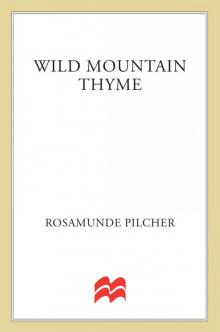 Wild Mountain Thyme
Wild Mountain Thyme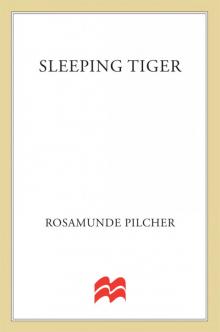 Sleeping Tiger
Sleeping Tiger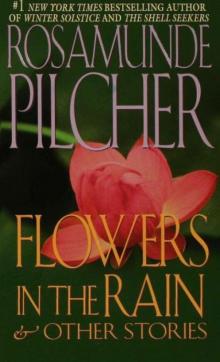 Flowers in the Rain & Other Stories
Flowers in the Rain & Other Stories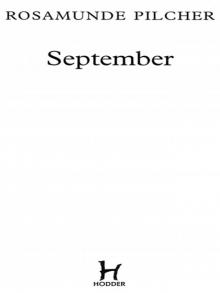 September
September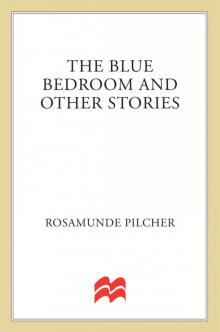 The Blue Bedroom: & Other Stories
The Blue Bedroom: & Other Stories The Carousel
The Carousel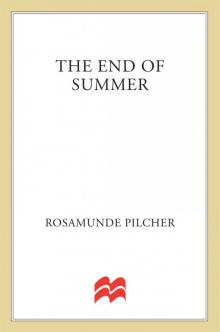 The End of Summer
The End of Summer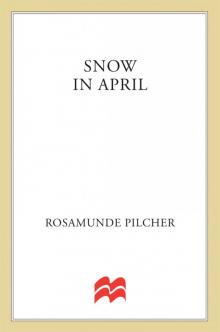 Snow in April
Snow in April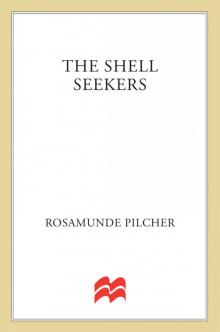 The Shell Seekers
The Shell Seekers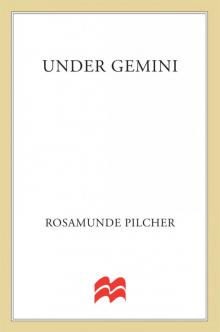 Under Gemini
Under Gemini The Empty House
The Empty House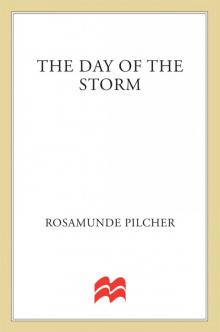 The Day of the Storm
The Day of the Storm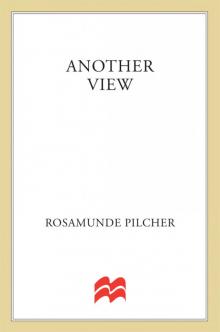 Another View
Another View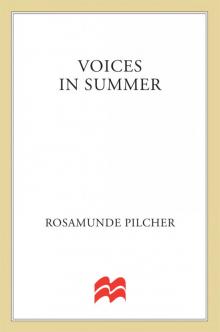 Voices in the Summer
Voices in the Summer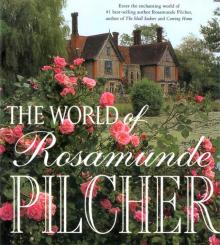 The World of Rosamunde Pilcher
The World of Rosamunde Pilcher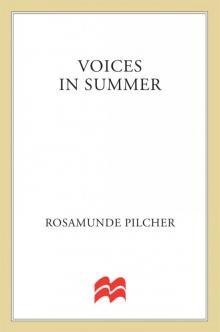 Voices In Summer
Voices In Summer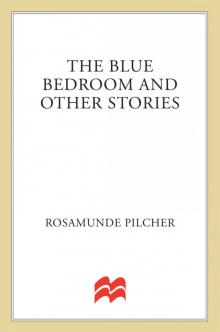 Blue Bedroom and Other Stories
Blue Bedroom and Other Stories